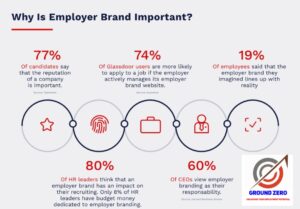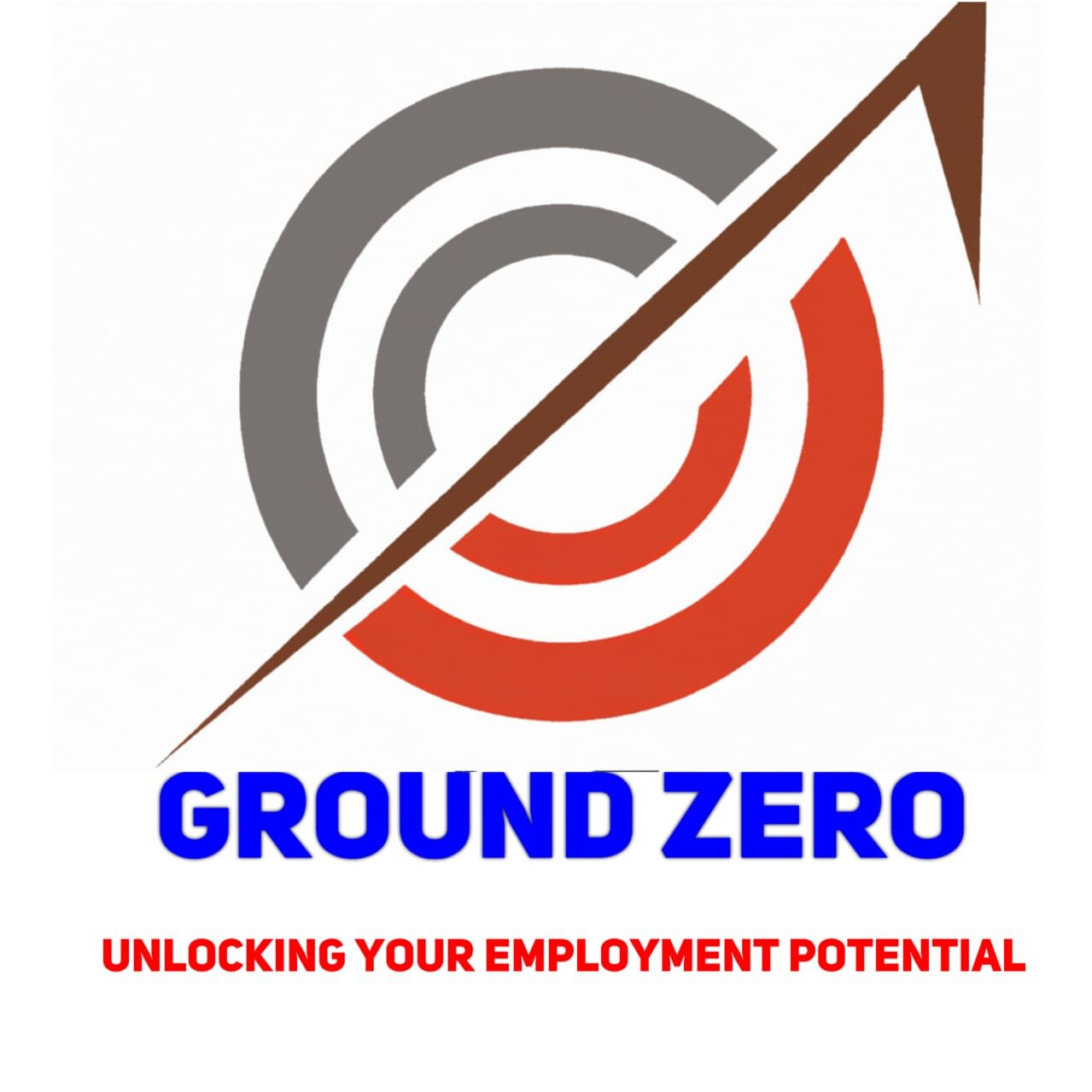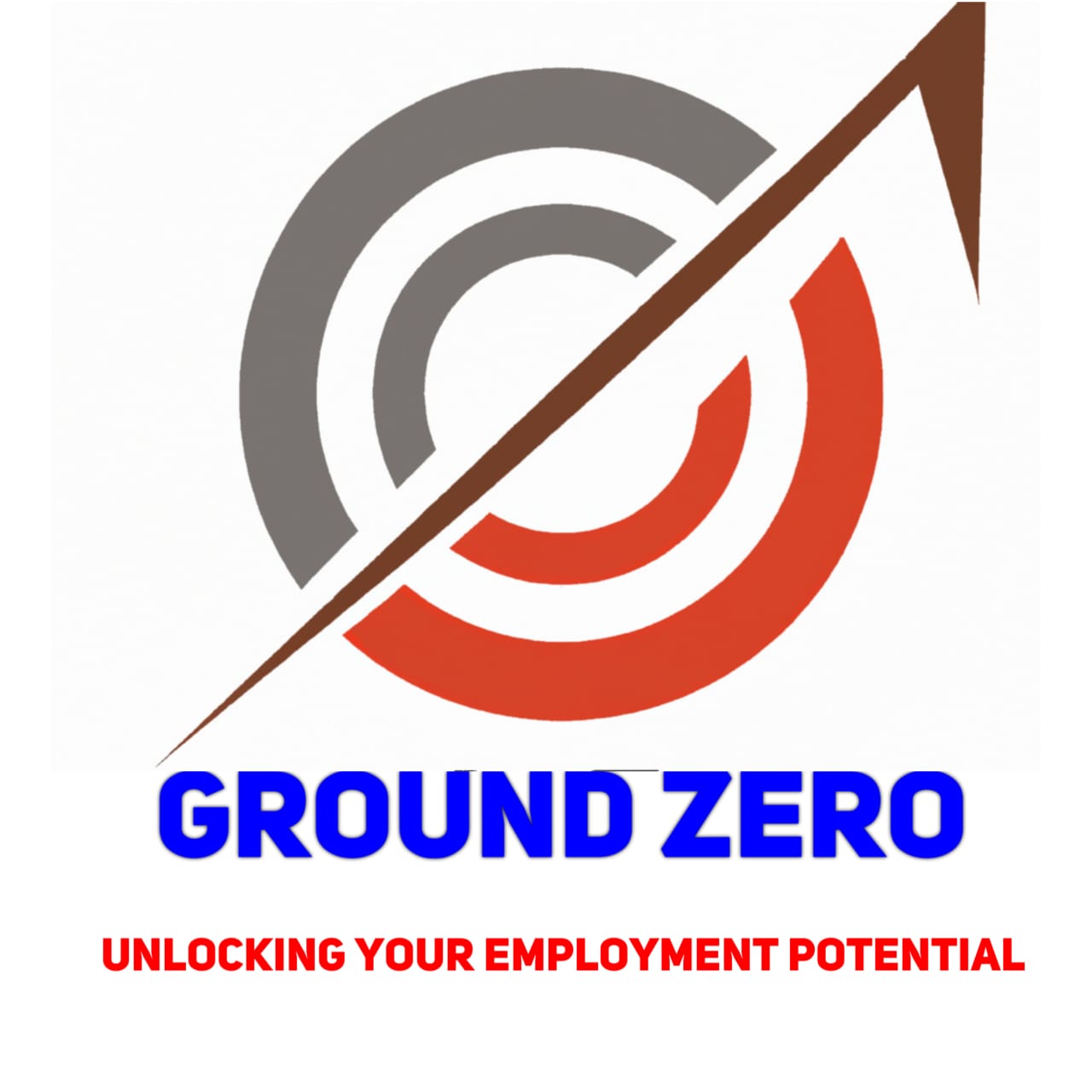
INTRODUCTION:-
Employer brand is the company’s brand facing inwards, mostly aiming for employee Retention and recruitment. Furthermore, your employer brand refers to the reputation you have built as an employer with the help of your employer value propositions.
Employer branding is the process of managing your reputation as an employer among your employees, potential hires, and even the rest of the job seekers in the market.
70% of employees say that a company is more attractive if it has clear plans for diversity and inclusion and social responsibility.

The reality is that not every business is ready for growth.
At first, you would be growing at a certain pace until this pace will incrementally get faster and faster over time. Note that scaling from five to ten people is different from scaling from 50 to 100. It differs from industry to industry, especially when you factor in the company’s size.
Although growing a business stems from an increase in revenue, this also entails the need for a reliable way to have additional resources and be able to serve customers and build partnerships—all while making sure that an effective brand awareness strategy is in place for your company, particularly for your employer brand.
A strong employer brand helps you overcome the obstacle in scaling your business using the right processes introduced by the right kind of leadership levels within your organization.
It will also help you sustain the growth of your business by gaining trust, landing new partnerships, and by getting the right people to help you scale even more.
what is an employer brand?
Employer branding, on the other hand, is what candidates think about working at your company. It’s your reputation in the marketplace.
That’s why companies tout their inclusion in lists such as “The Best Places To Work.” A list like that is a stamp of approval that the culture, workplace, and environment are good. It also signals to candidates that this would be a good employer, especially when their current employer does not make it.
The consulting firm Deloitte defines employer branding like this:
An employer brand…seeks to encapsulate the total value that employees gain from their relationship with an employer. By articulating and promoting an employer brand, a company can communicate the value of an integrated portfolio of benefits, helping employees appreciate the full scope of what the employer offers and enhancing the attractiveness of the employee-employer relationship.

What Are The Important Parts Of An Employer Brand?
An employer brand is a combination of the company’s reputation and the values that you offer potential employees, such as the culture, projects, advancement opportunities, and more. Your employer brand is greatly influenced by current employees, referrals, word of mouth, and any existing vendor relationships that you may have. All of them report and talk about your brand in one form or another.
A positive employer brand will boost recruiting, employee engagement and retention.
When shaping your employer brand strategy, consider how each of these elements impacts your employer brand.
1. Company culture.
Company culture can be intentional or by default. It happens either way. Your company will fall into a culture or intentionally develop one. Proactive company culture helps stop problems before they begin. Company culture is too important to leave up to chance. Your company adopts a certain personality and method even if you don’t intend for it too.
Culture is action-oriented, rather than policy-driven, emphasizing attitudes and actions instead of what’s cited on a slide deck.
“Culture is learned behavior — it’s not a by-product of operations. It’s not an overlay,” writes Jim Whitehurst, the CEO of Red Hat. “We create our organizational culture by the actions we take; not the other way around.”
Company culture is an organic force that seeps its way into the public sphere through your employees, their interactions and the publicity you do. Company culture is what is on your agenda, what you are focused on and even informs your business decisions.
2. Company reputation.
This is how employees discuss your company, your workplace, and the working environment. Word of mouth, review boards and community forum discussions can impact how your company is perceived by the best talent.
However, there is often a disconnect between what candidates expect and what happens once they arrive. A study by Weber Shandwick showed that only 19% of employees said that the employer brand they imagined lines up with reality.
By strongly aligning the employer brand with expectations, Weber Shandwick found that retention, recruitment, and productivity increased. In their research, they found that an employer reputation impacts 49% of an employee’s decision to stay. It’s worth the effort to make your brand meaningful to employees and recruits.
3. Personalized outreach.
With a strong employer brand, you can reach directly out to candidates and get a better response rate. Personalized outreach to passive candidates is endearing and a solid employer reputation and brand will make them more likely to respond. This direct sourcing makes candidates feel wanted and when supported by a strong employer brand, makes them more likely to consider your company. At Yahoo, one recruiter experienced a response rate of almost 70% once she began customizing her outreach emails more deliberately.
With personalized outreach, a stronger bond is created between the recruiter and the candidate. This may mean researching the candidate’s social media for appropriate references or mention any connections or work they did at previous employers.
4. Innovation.
Former Netflix HR exec Patty McCord says that “good talent managers think like business people and innovators first and like HR people last.” But in order for that to happen at the HR level, it happens within your company first. Many times, HR is the first introduction to your company. Is your HR department innovative and disruptive? Is it responsive and decisive? These choices trickle down to the types of people that are attracted to your brand. Employees are searching for reasons to remain with a company. Innovation is the hidden “wow” factor that makes employees proud to be among your company’s ranks.

Conclusion: An Employer Brand Is Bigger Than Individual Parts
Why maintain your employer brand? It’s what job applicants are interested in. Research says that 84% of candidates say that the reputation of a company is important. How you enrich your employer brand will impact your recruiting.
An employer brand is more than the sum of its parts. It is the first impression that you want everyone to have when they think of working for your company. You are aiming for a genuine and trustworthy expression of your brand. To make it stick, you need buy-in from each level: from individual recruiters, from your HR department, from employees in all departments and your executive team.
Discover more from Ground Zero
Subscribe to get the latest posts sent to your email.




